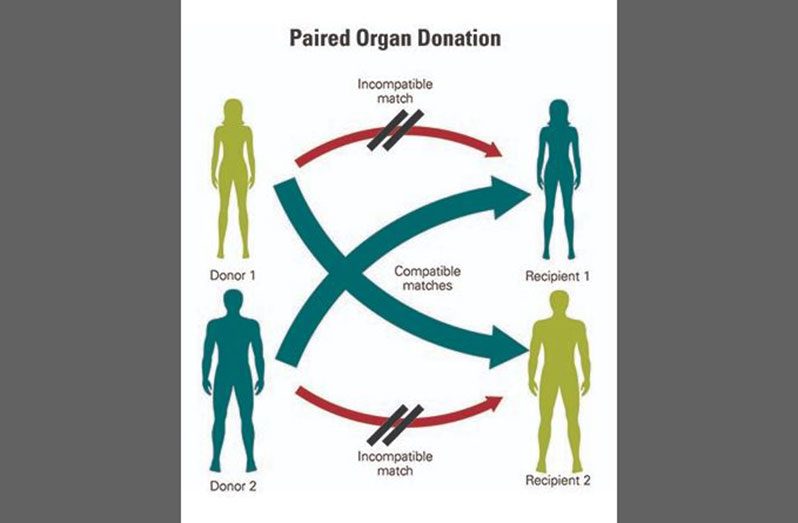–creates room for establishment of a Human Organ and Tissue Transplant Agency
THE opportunity to become a registered organ donor is now on the horizon, owing to the introduction of the Human Organ and Tissue Transplant Bill, which was presented to the National Assembly, on Thursday, by Minister of Health, Dr. Frank Anthony.
Once passed in the House and assented to by President Dr. Irfaan Ali, the first course of action under the new legislation would be the establishment and constitution of a Human Organ and Tissue Transplant Agency, as the national regulatory body for the donation and transplantation of human organs, tissues, cells and biofluids.
Implementation of this new legislation would mean that persons in need of organ donations would no longer be at the mercy of just relatives and friends who may or may not be a match; they would also stand the chance of being saved by organs extracted from a ‘brain-dead’ patient who is either a registered donor, or who has relatives consenting to the procedure.
As stipulated in the Bill, removal of organs, tissues, cells or biofluids shall not be done unless the donor is pronounced dead by two medical practitioners.
A person, according to the proposed law, is only considered dead once they have displayed irreversible cessation or stoppage of circulatory and respiratory functions, as well as irreversible cessation of the entire brain.
To make the latter operations possible, the proposed law requires that the transplant agency establishes a National Donor and Transplant Registry, which will handle all matters relating to the consent, and amendments and revocation of consent of adults who wish to become organ donors.
“The Registry shall issue a donor-card to the in-person donor and the online donor may access a printable donor-card available online, or attend the Registry to obtain a donor-card,” the Bill outlined.
The agency will also be responsible for the establishment of a register of patients in need of transplants, as well as the establishment of efficient storage facilities for organs, cells and biofluids.

Added to that, the proposed law empowers the Minister of Health to name any hospital, including a private hospital, clinic, healthcare provider or laboratory as designate facilities approved to function as transplant facilities, under the Transplant Act.
Further, the Bill prohibits the sale and/or trade of human organs, tissues, cells or biofluids for valuable consideration, specifying jail time of five years as well as a fine of $5 million.
However, the Bill does make special provisions for paired donations. This means that if there is a similar compatibility mismatch between two willing donors and their intended recipients, then an arrangement can be entered into where the donor of Group A can donate to the recipient of Group B, while the donor of Group B, can donate to the Group A patient.
They would be paired differently, but both patients would still receive the lifesaving organs, while both donors would be able to follow through on their commitment.
Additionally, the Bill also highlights specific requirements for organ transplants for minors, especially in cases where the minor is the organ donor.
As a matter of fact, the proposed law specifies that such circumstances will be supervised and facilitated by an Independent Assessment Committee comprising three persons, including a psychologist or psychiatrist.
The Bill also allows for cadavers (corpses) to be donated to universities, medical schools and other science programmes for the purpose of research. It would also govern specific issues relating to blood donation and transfusion.
Another key responsibility of the Transplant Agency would be the execution of a comprehensive public education programme to increase awareness relating to organ transplant and becoming organ donors.
Although organ transplant legislation exists in various parts of the developed world, it is being seen as a revolutionary step in the right direction for Guyana, especially as the country seeks to modernise its health sector.
Once enacted, the Human Organ and Tissue Transplant law is expected to result in many lives being saved, especially considering the growing number of persons in Guyana awaiting organ transplants; more prominently, patients suffering from kidney failure who rely largely on dialysis as a lifesaving mechanism.
The new legislation, once passed, will allow for those persons to be placed on a transplant list as recipients.



.jpg)








